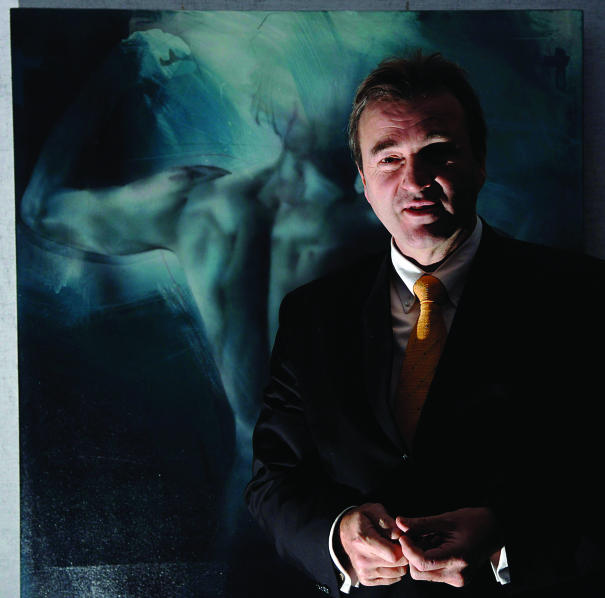A Dutch healthcare watchdog has ordered a clinic in Rotterdam to stop giving patients a treatment in which patients are injected with stem cells taken from umbilical cord blood. The clinic claims that the injection of stem cells can “target cells in a manner specific to an individual's condition.”
Figure 1.
The clinic's director, Dr Robert Trossel, has six weeks to object to the inspectorate's decision
Credit: PAUL O'DRISCOLL
A four month investigation into the Preventive Medicine Clinic by the Dutch Healthcare Inspectorate has concluded that the clinic is not providing “responsible care,” as it is “unable to demonstrate the origin, suitability, and safety of its stem cells” (www.igz.nl).
The inspectorate believes that this “jeopardises the health and safety of patients,” who could be at risk of being infected with HIV or Creutzfeldt-Jakob disease or might have acute allergic reactions or rejection reactions or develop malignant tumours.
Many British patients have sought treatment at the clinic. Days before the inspectorate's decision a British patient was temporarily admitted to a local hospital with a “serious acute allergic reaction” after stem cell treatment at the clinic.
The inspectorate's investigation was sparked by complaints by Dutch neurologists about the clinic's unproved stem cell treatment for conditions such as multiple sclerosis and spinal cord injuries (BMJ 2006;332: 1232).
Under Dutch law the clinic is obliged to offer responsible care, which means providing documentation covering the entire supply chain of stem cells from donor to recipient.
In June the inspectorate's investigators found a vial of stem cells that they were told was supplied by “ACT,” a firm called Advanced Cell Therapeutics. But there was no charge number or certificate of analysis.
In September a report on BBC television's Newsnight programme alleged that stem cells supplied by Advanced Cell Therapeutics were “not intended for use in humans.”
The clinic then voluntarily stopped using the company's stem cells. It then sought stem cells from a laboratory in Pakistan, but the documentation supplied did not show if the laboratory held a licence “to store and work on human umbilical cord blood for the purpose of administering it to patients.”
The inspectorate concluded that there was insufficient certainty about the “origin, suitability, and safety” of the stem cells. The acting inspector general, Nico Oudendijk, said that the clinic seemed to be carrying out far reaching experimental treatments whose effectiveness was uncertain.
Robert Trossel, the clinic's medical director, claims to have treated hundreds of patients, charging about £12 500 (€18 000; $23 400) each. Last week he was reported as saying that the stem cells he uses are safe.
Dr Trossel has six weeks in which to lodge an objection to the inspectorate's decision.
Supplementary Material
 Longer versions of these articles are on bmj.com
Longer versions of these articles are on bmj.com
Associated Data
This section collects any data citations, data availability statements, or supplementary materials included in this article.



